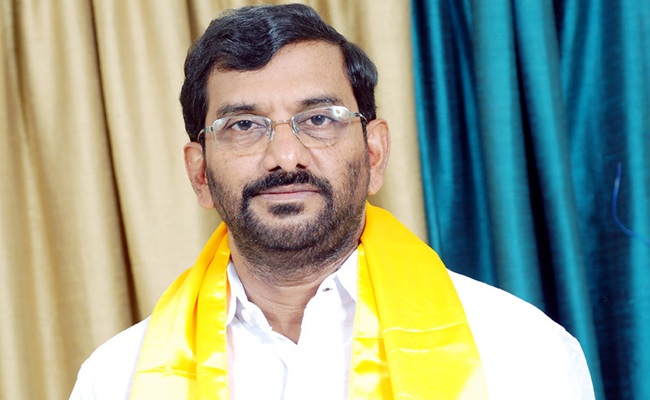
Movie: Uttama Villain
Rating: 2.5/5
Banner: Thirrupathi Brothers, Raaj Kamal Films International
Cast: Kamal Haasan, Jayaram, Urvashi, K. Balachander, Andrea Jeremiah, Pooja Kumar, Nassar and Others
Editor: Vijay Shankar
Cinematography: Shamdat
Music: M. Ghibran
Written By: Kamal Haasan
Producers: N. Lingusamy, Kamal Haasan, S. Chandrahasan, N. Subash Chandrabose
Director: Ramesh Aravind
Release Date: 2 May 2015
A tribute to his gurus, a tribute to the craft that he believes in and lives for and a tribute to the beauty of Indian art forms, Kamal Haasan’s Uttama Villain is yet another experiment from a man who does not give up on trying something new with every film of his. So, let’s see what one of the leading superstars of south Indian industry has to offer this time around…
Story:
It’s the story of Manoranjan (Kamal Haasan), ‘the’ superstar. Backed and managed by his father-in-law Poorna Chandra Rao (K Vishwanath), Manoranjan or Mano to friends is the reigning star till he is forced to confront a harsh reality or rather two bitter truths in his life. Having seen the ups and downs of life, Manoranjan does not take too long to accept his future and decides to do his bit before his life slips out of his control.
Off he goes to his mentor, the man who made him an actor much before he becomes a superstar, Margadarsi (K Balachander). He pleads with a reluctant Margadarsi to make a movie for him as a parting gift of sorts for himself and to his fans.
So, does Margadarsi oblige and make the memorable film of Manoranjan’s career? How does Manoranjan handle the many realities that surface in his life?
Artistes’ Performances:
Kamal Haasan, as an old Amitabh Bachchan dialogue goes, his name is enough. When one talks of Indian cinema, he is one name that requires no introduction. For Uttama Villain, he producers, writes and provides screenplay apart from playing the lead role. Well, his performance as always is flawless when it comes to the actor, though he does get a bit selfish in his other roles.
Then there are the two veteran directors, both of whom have played a very important role in moulding and taking forward the career of actor and performer Kamal Haasan. With Uttama Villain, Kamal pays his guru dakshina to directors K Balachander, his real-life mentor and K Vishwanath with whom he had done films like Sagara Sangamam and Swati Muthyam among others.
Both the directors are well into their sunset years when the film was shot (as K Balachander is no more) put in realistic performances and show that they can be as good in front of camera as they are behind camera. They bring out the nuances of their roles beautifully and it is heartening to watch both of them in the same frame, another masterstroke by Kamal Haasan to show his respect and love to them.
Then there is an ensemble cast of actors including Jayaram who plays Jacob Zacariah, Andrea Jeremiah (Dr Arpana), Urvasi (Manoranjan’s wife Vara Lakshmi), MS Bhaskar (Manoranjan’s manager Siva), Naseer (Villainous king) and last but not the least Pooja Kumar as Karpagavalli. All of them do a good job in keeping with their characters but Pooja gets the maximum screen time. Of course, Pooja tends to go overboard at places, but that probably could be due to the narrative chosen. But yes, the audiences would have surely done with a more toned down performance from her. Bhaskar is another actor who does a thoroughly convincing job from among the lot.
Technical Excellence:
The music by Ghibran in one word is different, to use the safest term. Well, it is not what the Telugu audiences are used to surely as much of the music is in keeping with the narrative style that Kamal Haasan uses to tell the story. In fact, in one bit, there is a cameo by Ghibran himself.
Cinematography is good, while the same cannot be said of editing. Despite Kamal Haasan, the film becomes tedious watching at places especially in the second half. He should have chopped off and trimmed the film further. Of course, it has been said that the film has been shortened just before release, but it could have taken a few more cuts easily.
Kamal Haasan provides the story and screenplay. He surely knows what he wanted to say, but one is left wanting more pace by the time end credits roll. As for Ramesh Arvind, it is pretty obvious that he is more of a functional director and that it is an out and out Kamal Haasan film.
Highlights:
- Kamal Haasan
- Climax
Drawbacks:
- Predictable story
- Lengthy second half
Analysis:
Like the man, his films also don’t need any introduction. When it is from Kamal Haasan, one knows that it will be different.
This time around, Kamal Haasan chooses to tell the story of a star, a star who is loved for his on-screen persona, and of a man who goes through myriad emotions once he takes off the grease paint just like any other human being.
The story per se has been dealt many times before and it has shades of Kamal’s own Indrudu Chandrudu, where in he uses two characters, both played by Kamal Haasan, to show how a man is equally vulnerable and simple beyond a carefully made up public persona built over the years.
In Uttama Villain, he revisits a similar clash and tries to say that a ‘hero can be a villain and in a role reversal, a villain could well be a hero’.
Despite its oft-told plot of an ageing superstar looking for that one film to fade out with grace and dignity, the film fleetingly touches upon the various layers that are so symbolic of film world full of glamour and fame.
This time, Kamal Haasan puts his mentors to good use and also uses two artforms, Theyyam from Kerala and Koothu tradition from Tamil Nadu to run the narrative in two parallel worlds. One is that of Manoranjan and another story is of Uttaman a performer and artiste in a kingdom run by a vile king who plots to marry his niece Karpagavalli. But the premise of both of them is nevertheless the same -- that the real beauty and secret of a good actor is his fine performance that blurs the thin line between reality and performance.
The colourful visualization and the format is impressive visually though it tends to get a bit tiresome towards the end.
The usage of comedy drama to tell the audiences the struggle that an actor goes through to project what he is not and to hide what he is is Kamal Haasan’s way of showing the duality of every actor’s personality.
Of course, the real-life Manoranjan’s story is probably the tamest that you would come across as it is entirely predictable and does not move you even in the climax scene. But his performance as Manoranjan is more refined than that of Uttaman.
That said, Uttam Villain has some very unsurprising episodes like Manoranjan’s talk with his children, his struggles of wanting to act with girls half his age, his near narcissist wish to sign off with a ‘memorable’ performance and some really boring comic scenes during the Uttaman episode.
So if you go to the theatres expecting an entertainer, then you are bound to be disappointed. But if you walk in wanting to watch Kamal Haasan and him alone on screen, then you will get nearly three hours of the man playing different roles both in front of and behind camera.
Bottomline: Not for everyone
(Venkat can be reached [email protected] or https://twitter.com/greatandhranews)













